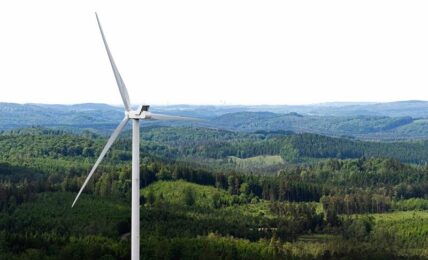California-based climate tech company CarbonCapture announced a decision to pause Project Bison, its Wyoming-based multi-megaton Direct Air Capture (DAC) carbon removal project, due to rapidly growing competition for renewable energy in the state from data center operators.
Founded in 2019, CarbonCapture produces DAC machines that use solid sorbents to efficiently absorb CO2 from the atmosphere, and the company utilizes a modular and upgradeable capture system that allows next-generation sorbents to be swapped in as they become available, enabling cost reductions over time without the need to construct entire new facilities.
CarbonCapture launched Project Bison in 2022, in partnership with carbon storage developer Frontier Carbon Solutions, to develop a facility in Wyoming that had been expected to be developed over multiple phases through 2030, reaching 5 million tons of capture and storage annual capacity.
In an update from CarbonCapture CEO Adrian Corless, the company noted that one of the key success factors to the strategy to scale DAC includes sourcing “locations where we’re sure to obtain affordable clean energy as well as carbon transport and storage infrastructure.”
Corless said that the company has “seen growing competition for clean power amongst industries that are emerging much faster than anybody would have ever predicted,” impacting its efforts in Wyoming, and leading the company “to pause our development of Project Bison and to relocate the deployment of our first-of-a-kind (FOAK) project outside the state.” The company specified that it is “dealing with intense competition from data centers.”
The announcement comes as several major tech companies, such as Microsoft, Google and Amazon, have highlighted increased energy needs to meet the AI-driven growth in data centers as a key challenge to their decarbonization goals, and have ramped up clean energy purchases over the past several months in order to meet the growing demand.
CarbonCapture announced in March 2024 that it had raised $80 million in a Series A financing round, with proceeds to be used for the development and deployment its DAC carbon removal systems. At the time, the company noted that it had already signed $26 million in carbon removal credits, with offtake agreements last year to remove over 55,000 tons of carbon dioxide.
Notably, Microsoft and Amazon are among some of CarbonCapture’s key early buyers of carbon credits from its DAC projects.
Regarding the impact of the decision on its buyers, CarbonCapture said:
“Our buyers understand that their support is catalytic to building the DAC industry and that infrastructure challenges can delay projects. We will be fulfilling early credits from our 2,000-ton-a-year commercial pilot that will be operating by early next year, consisting of four Leo Series modules. More information about the commercial pilot will be available in the coming months.”
CarbonCapture’s Project Bison was also selected last year for $12.5 million in funding from the U.S. DOE. The company said that it is “determining with DOE whether we can transfer this application to a new location.”
DAC technology, listed by the IEA as a key carbon removal option in the transition to a net-zero energy system, extracts CO2 directly from the atmosphere for use as a raw material or permanently removed when combined with storage. According to the landmark 2022 Intergovernmental Panel on Climate Change (IPCC) climate change mitigation study, scenarios that limit warming to 1.5°C include carbon dioxide removal methods scaling to billions of tons of removal annually over the coming decades, with DAC positioned to potentially account for a significant portion of the total.


